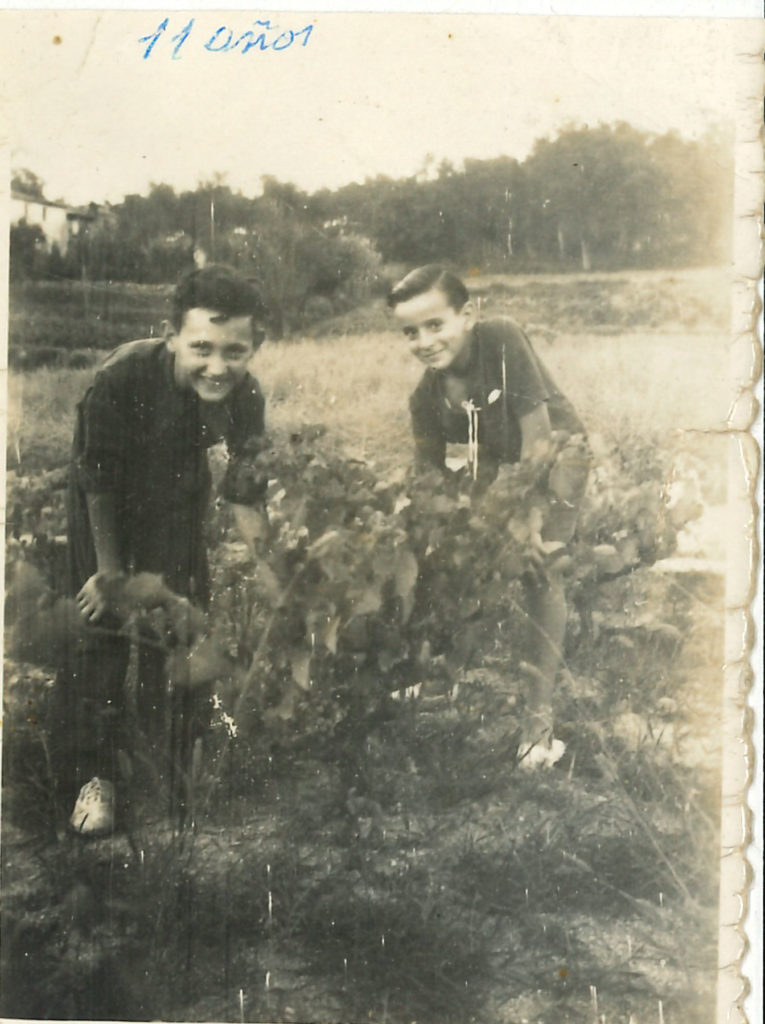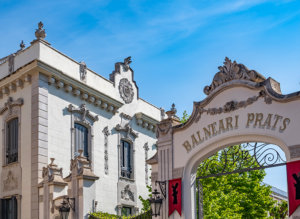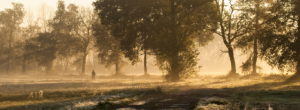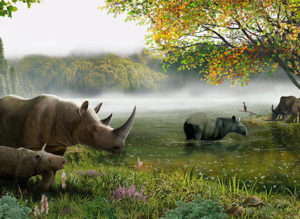Caldes en Temps de Guerres
Library – Panoramic View
“If during the Civil War the Vichy Catalan facilities served as a hospital for sick and wounded Republican soldiers, later on, in the middle of the world war, it, like the Prats and Soler Thermal Spas —the latter demolished a few years ago—, accommodated refugees from different areas. First they were French, English and Canadian—some of them, Jewish, while attempting to hide it—, survivors from a ship sunk near the Costa Brava. […] And this forced me to confess that I had absolutely no idea about an event that also took place in my town […] the presence, between 1944 and 1947, of a large contingent of Nazi characters, protected by the Franco government and who, half hidden and sometimes with the British turning a blind eye, lived there with their family preparing their move to Argentina.”
Joaquim Carbó, Tres balnearis en temps de guerra (2011)
[Joaquim Carbó was born in Caldes de Malavella in 1932. He is one of the most celebrated and famous Catalan writers, with over 100 titles and numerous awards. He was co-founder of the magazine Cavall Fort and has been an essential writer for the recovery of our literary language. He spent a large part of his childhood in Caldes, where he lived during the Civil War and during the post-war period, and was a direct witness to many of the events of that time.]
“At a certain point of the 19th century, in Catalonia, people discovered the curative virtue of the country’s waters and construction began on thermal spas. Catalan thermal spas were generally at the same level, if possible, even a little lower than road level […]. Nobody at that time in Catalonia bathed and capitalism of that time had a peculiar idea about slightly complicated ablutions; it was believed that baths were a decadent and rude invention introduced by the Moors. The more classic type of eastern thermal spa is Vichy Catalan in Caldes de Malavella…”
Josep Maria de Sagarra, “Balnearis” (1932)
“In the Selva, something else can also be done which is not very common. I mean, you can go to Caldes to take the waters, which are excellent. Being able to take the waters! What other more peaceful and benevolent dream is there! The waters of Caldes have considerable virtues and contain a load of substances that nobody would notice by just looking. After the
importance that this book gives to culinary things, a little Caldes water would be welcome. In any case, it will make you more complete.”
Josep Pla, Viatge a la Catalunya Vella (1976)
“Before she married my father, my mother would go to Caldes to take the waters because she had liver problems. Later the whole family went. We settled into the Prats Thermal Spa. “A can Prats, pels disbarats,” the people would say. […] I have a very precise memory of Caldes when I must have been 9 and a party was held at the Vichy building. It was a kind of costume ball where some very daring situations took place, considering the time. I remember women present at the party on a chair with a cane and a pear hanging, waiting for the man to collect it with their mouth.”
Josep Palau i Fabre (2002)







 8-9 hours
8-9 hours 22 miles
22 miles
